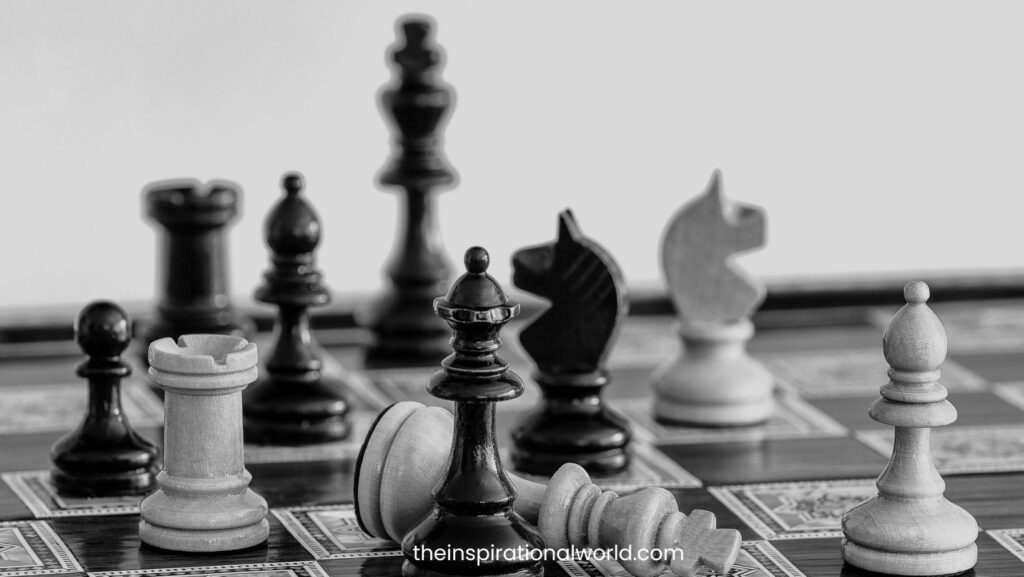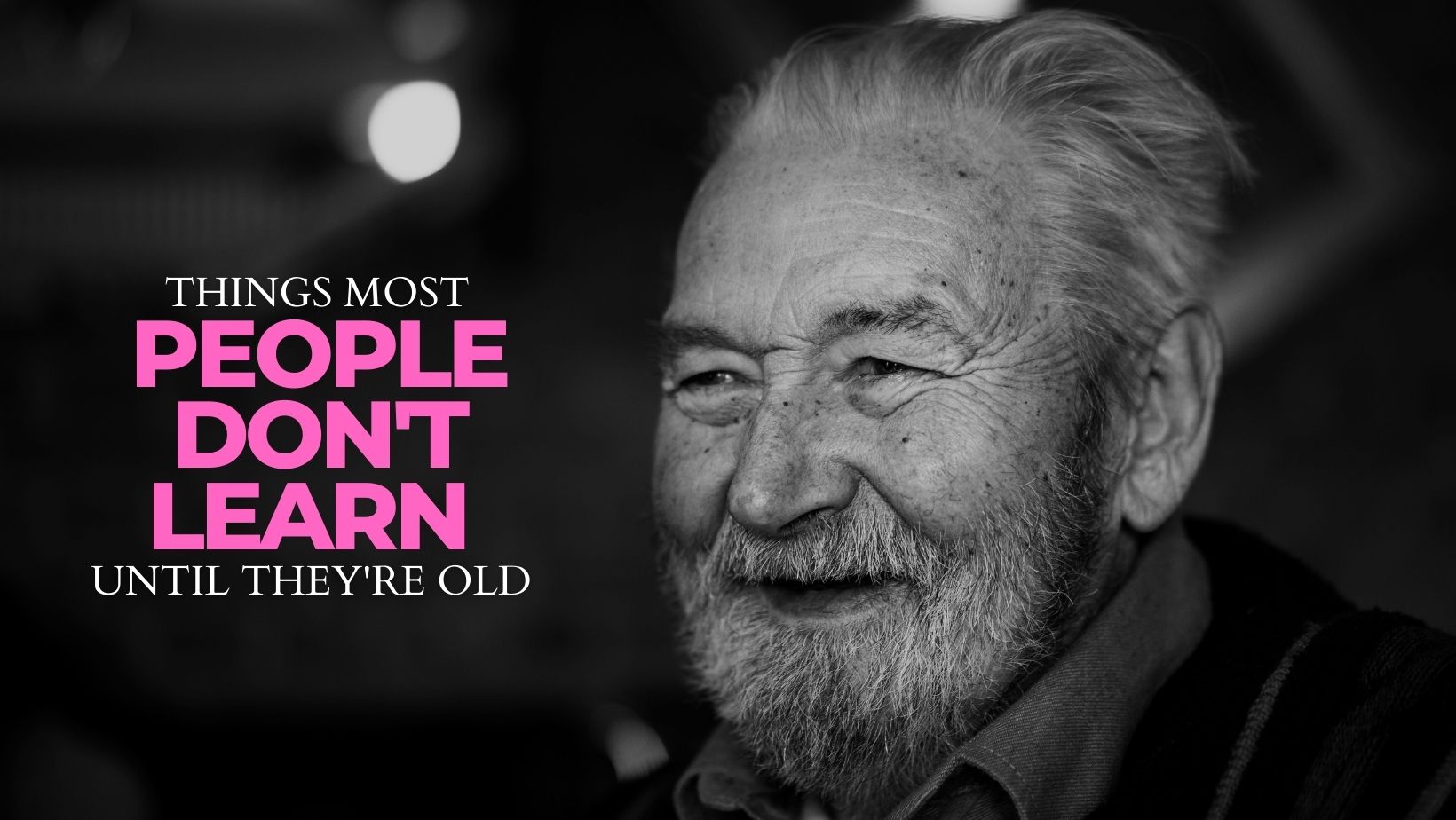This article highlights 15 valuable life lessons that Most People Take a Lifetime To Learn.
1. Failure is a necessary part of growth:
One of the things that most people learn over the course of a lifetime is that failure is a necessary part of growth. Many people are taught from a young age to avoid failure at all costs, and may view it as a reflection of their worth or ability.
However, as people grow and gain more life experience, they often realize that failure is not only inevitable, but can also be a valuable learning opportunity. Through failure, people can gain insights into their strengths and weaknesses, learn new skills, and develop resilience and perseverance.
Ultimately, those who embrace failure as a necessary part of growth are often more adaptable and successful in the long run, as they are willing to take risks and learn from their mistakes.
2. Happiness is a choice:

Many people spend their lives searching for happiness outside of themselves, when in reality, happiness is a choice. Learning to focus on gratitude, positivity, and personal growth can help individuals cultivate lasting happiness.
3. Forgiveness is for you, not them:
Holding onto grudges and anger can weigh us down and prevent us from moving forward. Learning to forgive, not for the benefit of others, but for our own emotional well-being, can be a trans-formative experience.
4. Success is subjective:

Society often defines success in narrow terms, such as wealth and status. However, success is ultimately subjective and can be defined in many different ways. It is important to define success on one’s own terms and strive for personal fulfillment rather than external validation.
5. Self-care is crucial:
Many people learn over the course of their lives the importance of taking care of themselves. Self-care means taking conscious actions to take care of your physical, emotional, and mental health.
Many people put the needs and demands of others ahead of their own well-being and may not be aware of the negative impact this can have on their health and relationships. Over time, however, many people realize that neglecting self-care can lead to burnout, stress, and a reduced quality of life.
Learning the importance of self-care can include developing healthy habits, setting boundaries, practicing self-compassion, and seeking support when needed.By prioritizing self-care, people can improve their overall well-being and live more fulfilling lives.
6. Authenticity has great power:
It can be draining and unfulfilling to try to live up to social standards or fit in. Being true to oneself and accepting one’s individual traits can be a potent instrument for success and personal development.
7. Being weak is not being vulnerable:

While many see it as a sign of weakness, vulnerability can actually be a strong bond and a nurturing force. Deeper relationships and personal growth can come from learning sensitivity and sharing challenges.
8. Perception is not reality:
Social expectations and personal prejudices can greatly influence how we perceive ourselves and others. Learning to question these beliefs and see things from different perspectives can lead to greater empathy and understanding.
9. Change is inevitable:
Most people learn over the course of their lives that change is inevitable. Despite our best efforts to control our lives and maintain a sense of stability, life is constantly changing and we must learn to adapt to new circumstances.
This realization can be difficult to accept because it requires letting go of the belief that you are in complete control of your life. However, by accepting change and learning to adapt, we can develop resilience, flexibility, and a greater sense of inner strength. Ultimately, the ability to accept and adapt to change is a key factor in living a satisfying and fulfilling life, as it allows us to weather the ups and downs with greater ease and grace. .
10. Relationships are the key to a fulfilling life:

While career success and personal achievements can be important, ultimately, it is our relationships with others that bring the greatest fulfillment and happiness. Investing in authentic, meaningful relationships can lead to a richer, more satisfying life.
11. Being thankful is a great weapon:
It can be easy to focus on what we don’t have or what’s wrong in our lives, but gratitude can change our perspective and improve our overall well-being. Practicing gratitude, whether through journaling or just reflecting on the good things in life, can increase resilience and happiness.
- Also Read: 15 Things to Keep as a Secret
12. Being mindful is crucial:
The value of mindfulness is one of the things that most people take a lifetime to understand. Being mindful is paying close attention to the here and now, without passing judgement or becoming sidetracked.
It is a practise that may raise general quality of life, reduce stress and anxiety, and promote mental and emotional health. To properly master the technique of mindfulness, though, it may take years of deliberate practise.
People can learn to enjoy the present moment, connect more deeply with others, and address obstacles in life with better clarity and resilience by practicing mindfulness. It is an important talent that may improve many facets of life and lead to long-term fulfillment and satisfaction.
13. The value of boundaries:
Boundaries are key to maintaining healthy relationships and protecting personal well-being. Greater self-esteem and better interpersonal relationships can come from learning to put your own needs first and not those of others.
14. Failure is not personal:

A lot of people believe that failure is a reflection on their own abilities or value. Failure, though, frequently results from outside forces or uncontrollable situations. More resiliency and a more optimistic attitude on life can result from learning to divorce failure from individual identity.
Related Article: 7 Important Lessons It Takes Most People A Lifetime To Learn
